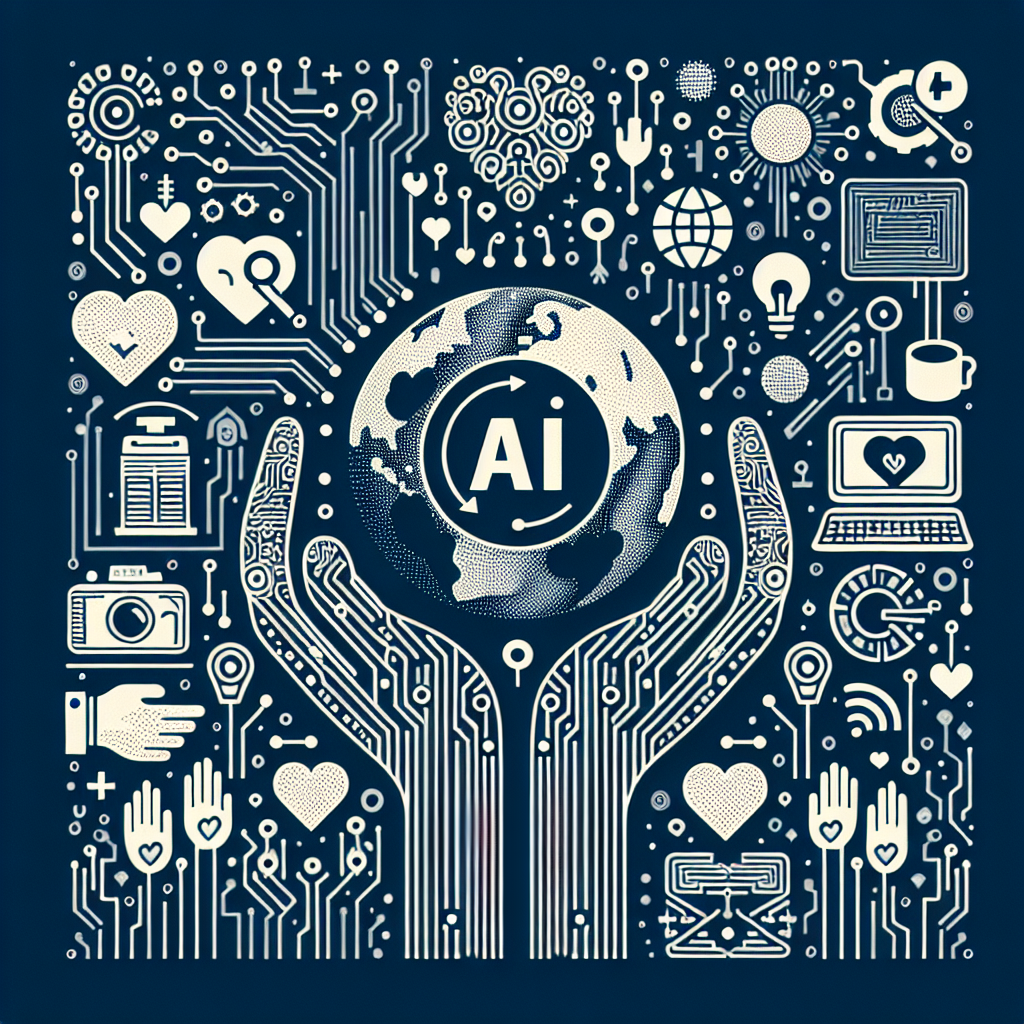Artificial Intelligence (AI) has emerged as a powerful tool in transforming various industries, including nonprofit organizations. With its ability to analyze large amounts of data, automate tasks, and provide valuable insights, AI is revolutionizing the way nonprofits operate and achieve their missions.
The Role of AI in Nonprofit Organizations
1. Data Analysis: Nonprofit organizations collect vast amounts of data on their donors, volunteers, beneficiaries, and operations. AI can help nonprofits analyze this data to identify trends, patterns, and insights that can inform strategic decision-making. By leveraging AI-powered analytics tools, nonprofits can better understand their stakeholders, optimize their fundraising campaigns, and improve their programs and services.
2. Donor Engagement: AI can enhance donor engagement by personalizing communications and interactions. Nonprofits can use AI-powered chatbots to provide instant responses to donor inquiries, recommend personalized donation amounts based on donor behavior, and send targeted messages to donors based on their preferences and giving history. By leveraging AI, nonprofits can build stronger relationships with donors and increase donor retention rates.
3. Fundraising: AI can revolutionize fundraising efforts by predicting donor behavior, identifying potential donors, and optimizing fundraising campaigns. AI-powered algorithms can analyze donor data to predict which donors are most likely to give, how much they are likely to give, and when they are likely to give. This information can help nonprofits target their fundraising efforts more effectively and increase their fundraising success.
4. Program Optimization: AI can help nonprofits optimize their programs and services by analyzing data on program outcomes, beneficiary feedback, and operational efficiency. AI-powered tools can identify areas for improvement, recommend strategies for program expansion, and predict the impact of program changes. By leveraging AI, nonprofits can deliver more effective and efficient programs that better meet the needs of their beneficiaries.
5. Operational Efficiency: AI can streamline nonprofit operations by automating repetitive tasks, such as data entry, reporting, and scheduling. AI-powered tools can also optimize resource allocation, predict equipment maintenance needs, and identify cost-saving opportunities. By automating routine tasks and optimizing operations, nonprofits can free up time and resources to focus on their mission and achieve greater impact.
FAQs about AI in Nonprofit Organizations
Q: How can nonprofits leverage AI for fundraising?
A: Nonprofits can use AI to predict donor behavior, identify potential donors, and optimize fundraising campaigns. AI-powered algorithms can analyze donor data to predict which donors are most likely to give, how much they are likely to give, and when they are likely to give. This information can help nonprofits target their fundraising efforts more effectively and increase their fundraising success.
Q: Is AI expensive for nonprofits to implement?
A: While implementing AI can require an initial investment, there are many affordable AI tools and solutions available for nonprofits. Many tech companies offer discounted or pro bono services for nonprofits, and there are also open-source AI tools that nonprofits can leverage. Additionally, the long-term benefits of AI in terms of increased efficiency, effectiveness, and impact can outweigh the initial costs.
Q: How can nonprofits ensure data privacy and security when using AI?
A: Nonprofits should prioritize data privacy and security when implementing AI by following best practices for data protection, encryption, and compliance with regulations such as GDPR and HIPAA. Nonprofits should also work with AI vendors and partners who prioritize data privacy and security and have robust data protection measures in place.
Q: How can nonprofits ensure that AI is used ethically and responsibly?
A: Nonprofits should establish ethical guidelines and policies for the use of AI within their organizations, including guidelines for data collection, analysis, and decision-making. Nonprofits should also prioritize transparency and accountability in their use of AI, and regularly review and evaluate the impact of AI on their stakeholders and mission.
In conclusion, AI has the potential to transform nonprofit organizations by enhancing data analysis, donor engagement, fundraising, program optimization, and operational efficiency. By leveraging AI-powered tools and solutions, nonprofits can improve their effectiveness, efficiency, and impact in achieving their missions. As AI continues to evolve and advance, nonprofits have the opportunity to harness its power to create positive change and make a difference in the world.

